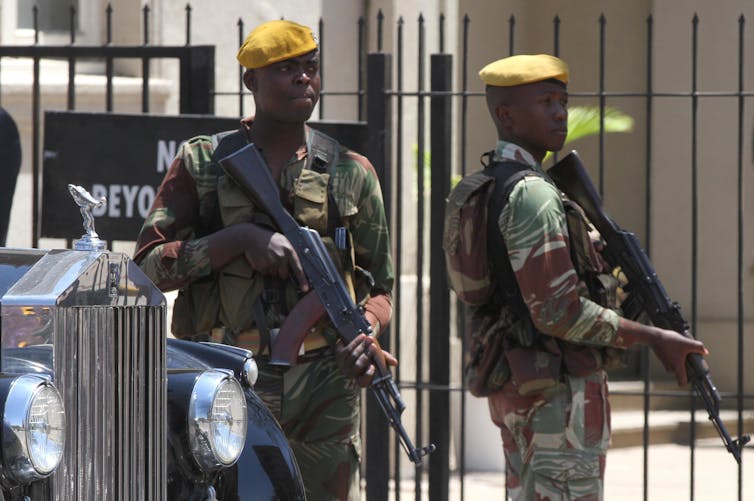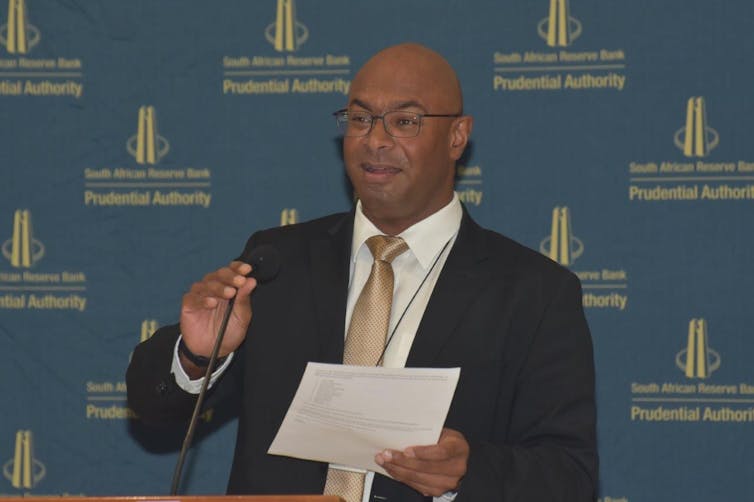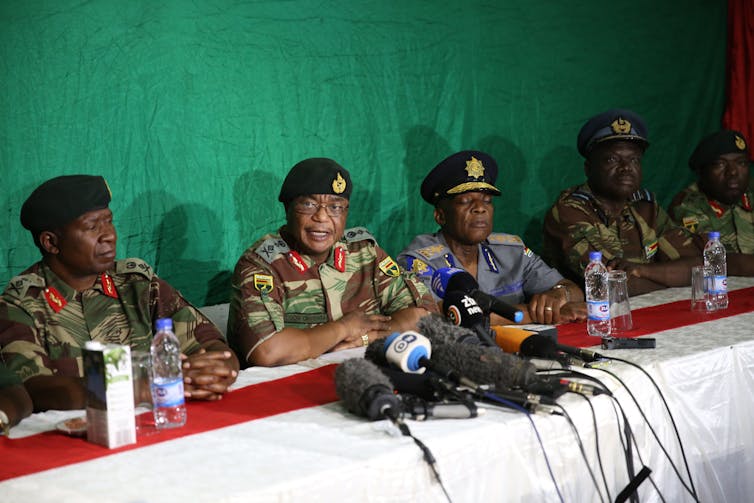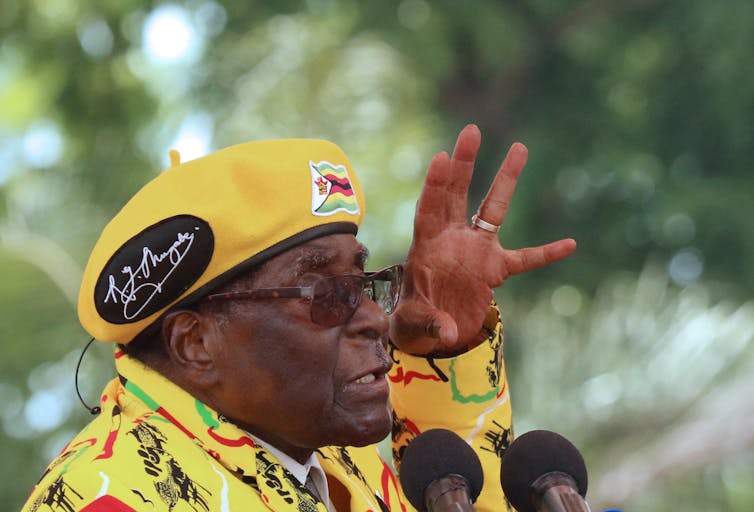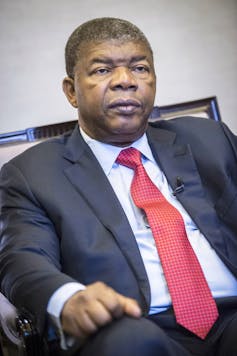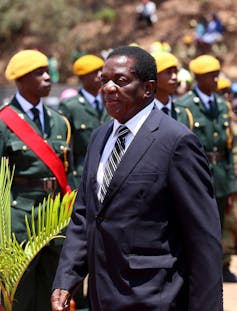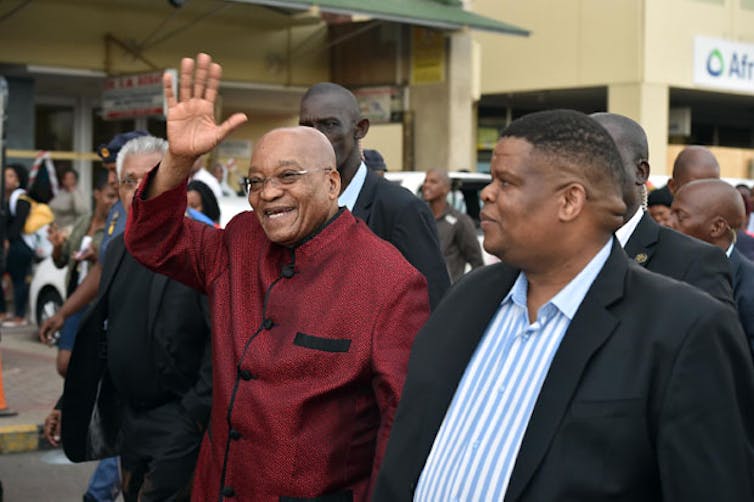
President Jacob Zuma has appointed David Mahlobo, a close ally as energy minister.
Flickr/GovernmentZA
South African President Jacob Zuma, has a maximum of 18 months left as head of state. This time he hopes to rescue a nuclear power deal involving a proposed contract to build between six and eight new nuclear reactors in South Africa.
In an attempt to push through the deal, Zuma has appointed his former minister of state security, David Mahlobo as energy minister. The president trusts that Mahlobo, a close ally for over ten years, will act decisively to implement the deal. He appears to be under orders to get a deal with Russia done and dusted.
The nuclear deal contract is for nuclear reactors to produce 9600 megawatts of power. This would be five times the amount of energy generated from Koeberg, South Africa’s only nuclear power plant which generates a maximum of 1844 megawatts.
But the facts show that the country does not need this extra power. Demand for electricity has come down every year since 2011. And the National Treasury argues that the costs, in the range of at least R1-1,8 trillion, will be prohibitive.
Nuclear energy will also be the most costly electricity source, according to work done by energy experts. In a climate where the state utility Eskom is deeply in debt and is therefore trying to raise the price of electricity by 19.9% for the next few years, investment for nuclear will force up the cost to consumers, and meeting the borrowing requirements will put unnecessary pressure on an already stressed economy.
Zuma’s push for nuclear continues to emphasise how isolated he really is. The anti-nuclear lobby is no longer confined to environmentalists. Large sections of civil society, business, academia and even sections of government have come out against it. My hunch is that democracy will win, and the people will triumph over a tainted and over-extended kleptocrat.
Massaging the energy strategy
Zuma’s efforts to get the deal underway have been stopped in their tracks following a court ruling that declared previous attempts to privilege Russian interests as illegal. The court ruled that before the deal can be reinstated, it has to go through a public participation process and parliament has to approve it. The court also ruled that state efforts to put Eskom in charge of procurement were illegal, as the proper procedures weren’t followed.
It is unlikely that even Mahlobo can meet these legal requirements in the time that his boss has left in office.
Mahlobo’s first step has been to try to speed up the state’s energy strategy – which was supposed to be updated in April 2018. Although the plan is supposed to be updated every two years the 2010 version – which called for more nuclear procurement – is officially still on the table. A subsequent revision in 2013 questioned the need for nuclear. But this plan was never tabled in parliament by the Department of Energy.
The 2018 plan being promised by Mahlobo is expected to re-emphasise the commitment to nuclear. Zuma wants the plan fast tracked. But by speeding it up, the government has indicated to parliament that it will be excluding a public participation process.
This is likely to be challenged given that the plan is the closest thing South Africa has to a national discussion on its energy future.
But even if the plan can be massaged in Zuma’s interests, it won’t be enough to ensure the deal goes through. It will be challenged by political parties and NGOs who are prepared to litigate to challenge a rigged plan if necessary.
Additional hurdles
The public participation process that the national electricity regulator must manage – as prescribed by the April 2017 court judgement – is far from being established. The regulator was berated by the court for not doing this. It has to happen before procurement takes place. The process will provide the perfect opportunity for organisations to make the case that the scientific, environmental and economic arguments against new nuclear are backed by solid evidence.
Even if this process approved the orders of new reactors, there are other hurdles to be cleared. Before the competitive procurement process can be initiated, South Africa would need to renew a series of legal memoranda of understanding with vendor countries. These include France, Russia, China, South Korea and the US. This would ensure that these are free of contractual content, and then sanctioned by parliament. Only then can the procurement proceed legally. And government would have to ensure that the process abides by the Constitutional requirements of “fairness, equity, transparency, competitiveness and cost-effectiveness.”
This means that it will be illegal and unconstitutional to offer Russia preferential treatment in guaranteeing that it secures the deal.
Any transgression of the law or the Constitution will be met by litigation from the environmental lobby. It will be strengthened by an array of other actors, ranging from tax and anti-corruption to human rights activists.
David Fig, Honorary Research Associate, University of Cape Town
This article was originally published on The Conversation.
